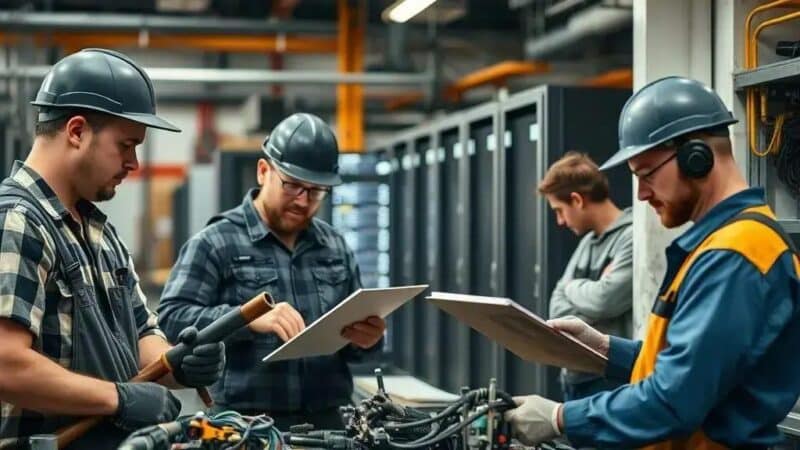Essential economy is more than a buzzword — it points to the trades, repairs and services we’ve undervalued. Could prioritizing vocational training and skilled work fill about a million open jobs and offer real alternatives to the four‑year college track? Let’s explore the implications for families, schools and policy.
What the “essential economy” means: beyond manufacturing
The essential economy is a big idea. It includes all the jobs and services that keep our daily lives running smoothly. Think beyond just making things in factories. It’s about the people who fix our cars, repair our homes, and keep our internet working. These are vital jobs that often get overlooked.
Many of these roles fall into skilled trades. These include electricians, plumbers, HVAC technicians, and mechanics. They also cover healthcare support workers and data center specialists. These jobs are always needed, no matter what the economy is doing. They are the backbone of our communities.
More Than Just Goods
The essential economy focuses on services and maintenance. It’s not just about producing new items. It’s about keeping existing systems and infrastructure in good shape. This includes things like maintaining roads, bridges, and power grids. It also means supporting our digital world.
These jobs provide stability for families. They also make our economy stronger. When these essential services are well-staffed, communities thrive. This idea challenges older views that only manufacturing jobs truly mattered. Today, we see the true value of these hands-on skills.
Why These Jobs Matter So Much
These roles are crucial for everyone. Imagine a day without working internet or clean water. That’s why people in the essential economy are so important. They ensure our basic needs are met and our modern lives continue. Investing in these areas helps everyone.
This shift in thinking highlights the need for vocational training. It shows that a four-year college degree isn’t the only path to success. Skilled trades offer great careers and good pay. They are a smart choice for many young people.
Policy, training and the jobs gap: boosting vocational pathways and skilled trades
There’s a big problem in the job market right now. Many jobs are open, especially in skilled trades. Experts say we need to fill about a million of these jobs. This gap hurts our economy and makes it hard to get important services done. We need to find ways to get more people into these roles.
Current policies and school systems often focus on four-year college degrees. This leaves many young people unaware of other great career paths. We need to change how we think about education and work. It’s time to put more focus on vocational training and hands-on skills.
Improving Training Programs
Vocational training is key to closing this jobs gap. These programs teach practical skills for specific jobs. Think about welding, plumbing, electrical work, or IT support. These are jobs that pay well and are always in demand. We need more schools and programs that offer this kind of learning.
Apprenticeships are another great option. They let people learn a trade while working and earning money. This hands-on experience is very valuable. It helps new workers gain confidence and real-world skills. Businesses can also benefit by training their future workforce.
New Policies for a Stronger Workforce
Governments and schools can help a lot. They can create policies that support vocational education. This means funding for trade schools and promoting these careers. It also means making it easier for people to access these training programs. We need to show that skilled trades are respected and rewarding.
Changing public perception is also important. We need to celebrate the people who work in these essential jobs. They build our homes, fix our cars, and keep our infrastructure running. By boosting these pathways, we can fill the jobs gap. This will create a stronger, more stable economy for everyone.
Fonte: Fortune.com








